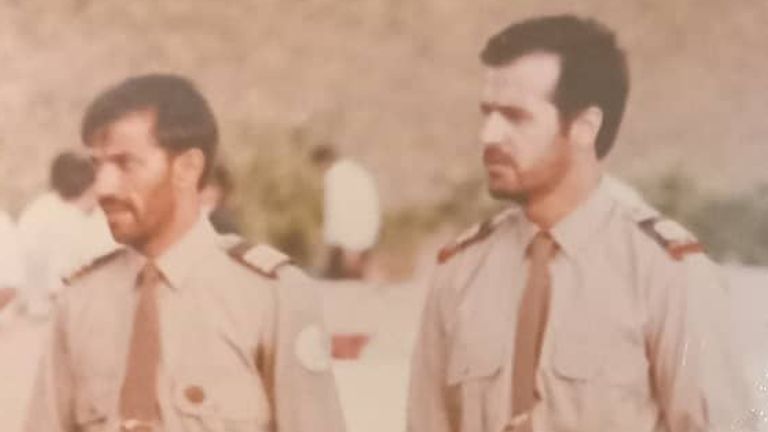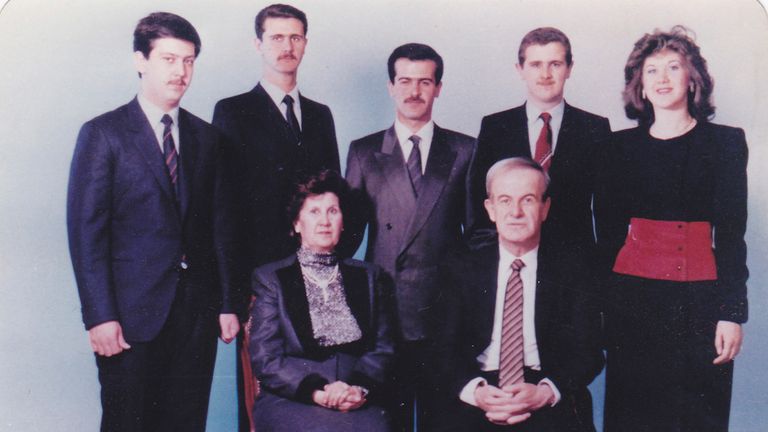A Syrian former equestrian champion has told how he was jailed and tortured for 21 years after he beat Bashar al Assad's older brother in a competition.
Adnan Kassar, once a celebrated figure in the country's sports scene, spoke to Sky News about his ordeal for the first time following the fall of the Assad family regime's more than 50-year rule.
He won multiple gold medals and captained the national equestrian team in the late 1980s, with his career peaking in 1993 at the third International Equestrian Championship in Latakia, where his flawless performance secured victory for the team.
Mr Kassar was a close friend of Bassel al Assad but the achievement apparently drew the ire of his fellow equestrian, who had faltered during the competition.
Bassel was the heir apparent to the Syrian presidency before his death in a car crash in 1994 led to his brother Bashar al Assad's return from London, where he worked as an eye doctor, to be trained to take over when his father died.

"The crowd lifted me on their shoulders. It was a moment of pure joy, but for Bassel, it wasn't the same. That day marked the beginning of my nightmare," he said.
Shortly after the event, Mr Kassar was arrested over vague accusations, which he said were fabricated as a result of Bassel's resentment.
He told how his detention turned into a prolonged ordeal marked by brutal interrogations and years of physical and psychological abuse.
"I was kept underground for six months, beaten constantly, and interrogated without end," he said.
He was then transferred to the notorious Sednaya Prison, dubbed the "human slaughterhouse", where he said "the torture only got worse".

Read more:
From doctor to dictator - Assad's rise and fall
Inside Syria's notorious 'human slaughterhouse'
Mr Kassar said his treatment became even more severe after Bassel died.
"They blamed me for his death," he said. "Every year on the anniversary of his passing, the torture intensified."
He was also held for seven-and-a-half years at Tadmur Prison, which is also infamous for its inhumane conditions.
"They pierced my ear one morning and broke my jaw in the evening," he recalled, saying acts as simple as praying were met with extreme punishment.
"For praying, they lashed me 1,000 times. My feet were torn apart, my bones exposed," he said.
Many activists repeatedly raised his case following the outbreak of the Syrian revolution, which demanded the end of the Assad family rule.
But despite international appeals, his name was repeatedly excluded from amnesty decrees issued during his imprisonment.
Mr Kassar was finally released on 16 June 2014 after sustained pressure from international groups - nearly 22 years after his arrest.
Until now, he has remained silent about his imprisonment, fearing that any attempt to share his story could result in re-arrest and a return to prison, but has spoken out after Assad was toppled as Syrian president.
"After years of imprisonment, torture, and injustice, the revolution finally toppled the dictatorial regime," he added.

 2 weeks ago
6
2 weeks ago
6










 English (US) ·
English (US) ·